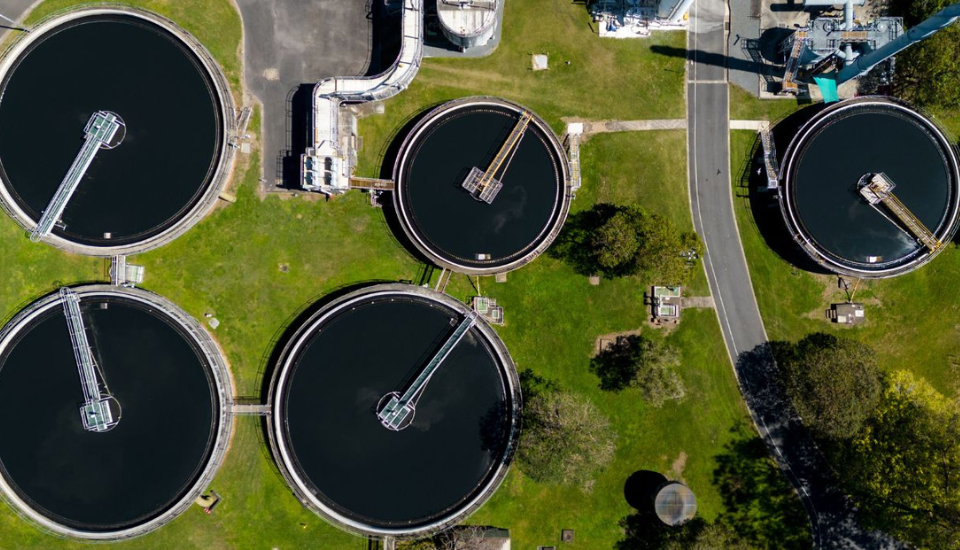
Environmental Monitoring of Nitrates and Other Water Quality Parameters: pH,
Environmental Monitoring of Nitrates and Other Water Quality Parameters: pH,...

Wastewater treatment plays a pivotal role in preserving the environment and safeguarding public health. As industrial and population growth continue to increase the volume of wastewater generated, effective treatment methods are crucial to mitigate environmental impact. We will explore the importance of wastewater treatment, its significance in public health and the various methods employed to treat wastewater.
Wastewater, generated from residential, commercial, industrial and agricultural activities contains a wide range of contaminants. If left untreated, it can pose significant health risks to the public and the environment. Proper wastewater treatment is essential for several reasons:
Public health
Wastewater often contains harmful pathogens, bacteria and viruses that can cause waterborne diseases. By treating wastewater, these pathogens are removed, preventing the spread of illnesses and protecting public health.
Environmental protection
Untreated wastewater discharged into water bodies can lead to water pollution, harming aquatic ecosystems and compromising the biodiversity of rivers, lakes and oceans. Effective treatment processes remove pollutants, minimising the environmental impact and maintaining ecological balance.
Resource conservation
Wastewater contains valuable resources such as water, energy and nutrients. Treating and recycling wastewater allows for the conservation of these resources, reducing the strain on freshwater supplies and promoting sustainable practices.
Wastewater treatment involves several stages to ensure its safe disposal or reuse:
Preliminary Treatment
The initial stage involves the removal of large objects and debris through screening and sedimentation. This process prevents damage to downstream equipment and ensures the smooth flow of wastewater.
Primary Treatment
In this phase, physical processes such as sedimentation and flotation are employed to remove suspended solids and organic matter. Gravity settles the solid particles, forming sludge, while the relatively clear liquid proceeds to secondary treatment.
Secondary Treatment
Also known as biological treatment, this stage uses biological processes to further break down organic matter. Aerobic and anaerobic processes, such as activated sludge, trickling filters, and lagoons, facilitate the decomposition of organic substances, converting them into harmless byproducts.
Tertiary Treatment
If higher water quality standards are required, tertiary treatment is employed. This phase uses advanced filtration technologies like sand filters, membranes, or chemical processes such as coagulation and disinfection to remove remaining suspended solids, nutrients, and pathogens.
Sludge Treatment
Sludge produced during the treatment process undergoes separate treatment. Techniques such as digestion, dewatering, and drying are employed to reduce the volume and stabilize the sludge, facilitating safe disposal or beneficial reuse.
As technology advances, innovative approaches are being utilized to improve wastewater treatment efficiency and resource recovery. Some notable advancements include:
Membrane Filtration
Membrane-based technologies, including microfiltration, ultrafiltration, nanofiltration, and reverse osmosis, offer enhanced filtration and separation capabilities, effectively removing particles, microorganisms, and dissolved contaminants.
Biological Nutrient Removal (BNR)
BNR processes combine nitrogen and phosphorus removal with traditional biological treatment. These processes optimize nutrient removal, minimizing the discharge of these pollutants into water bodies and reducing the risk of eutrophication.
Resource Recovery
Advanced treatment techniques allow for the recovery of resources from wastewater. These include the extraction of energy through anaerobic digestion or the recovery of nutrients like phosphorus and nitrogen for use as fertilisers.
Wastewater treatment is a crucial process that protects public health, preserves the environment, and promotes sustainability. By effectively treating and managing wastewater, we can prevent waterborne diseases, minimize water pollution, and conserve
At Hanna Instruments, we can supply you with reliable equipment for effective wastewater treatment:
BlackStone Series dosing pumps use a minimum number of moving parts, therefore reducing the chance of mechanical failure. Part wear and oiling associated with motor driven pumps (ball-bearings, gear drives and cams) are not a concern with these pumps. A wide range of BlackStone pumps with different dosing capacities are available for your specific dosing needs The pumps have been designed to meet the ever changing needs of the industry.
HI9829 waterproof multiparameter is a portable logging multiparameter tool that monitors up to 14 different water quality parameters. The microprocessor based multi-sensor probe allows for the measurement of key parameters including pH, ORP, conductivity, dissolved oxygen, turbidity, ammonium, chloride, nitrate and temperature.
Environmental Monitoring of Nitrates and Other Water Quality Parameters: pH,...
Salt Concentration In A Brine Solution For Curing Salmon Traditionally,...

To empower customers to achieve quality by supplying intuitive, accurate, and reliable analytical instruments with exceptional customer service and value.
We take pride in every product we build. From an original idea to a completed product ready for testing. We oversee every aspect of the manufacturing process. It is this level of attention to detail that sets us apart.
To empower customers to achieve quality by supplying intuitive, accurate, and reliable analytical instruments with exceptional customer service and value.
We take pride in every product we build. From an original idea, to a completed product ready for testing. We oversee every aspect of the manufacturing process. It is this level of attention to detail that sets us apart.
To empower customers to achieve quality by supplying intuitive, accurate, and reliable analytical instruments with exceptional customer service and value.
We take pride in every product we build. From an original idea, to a completed product ready for testing. We oversee every aspect of the manufacturing process. It is this level of attention to detail that sets us apart.

